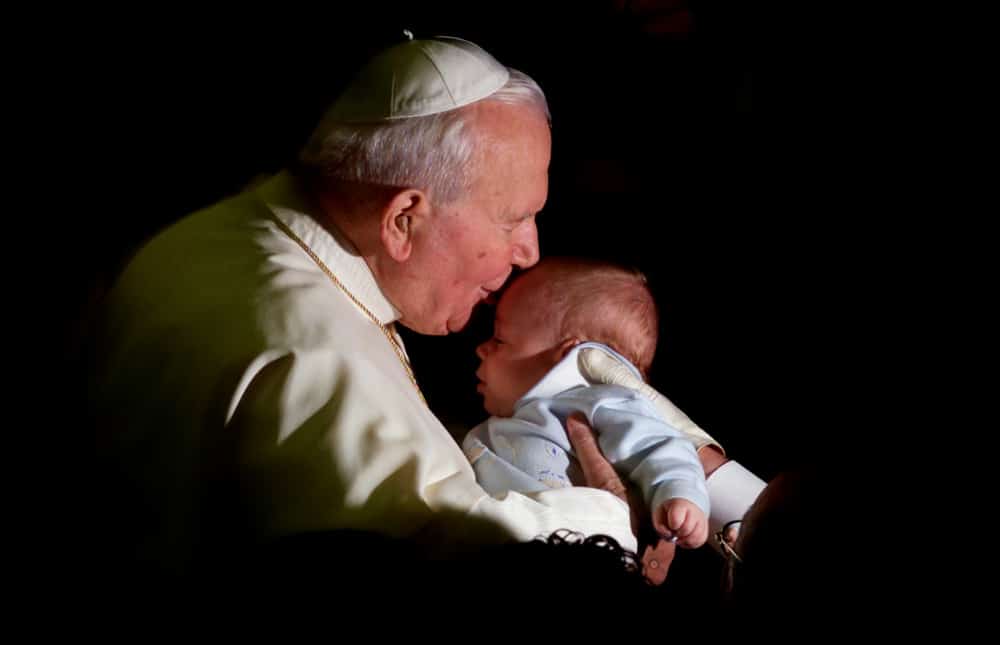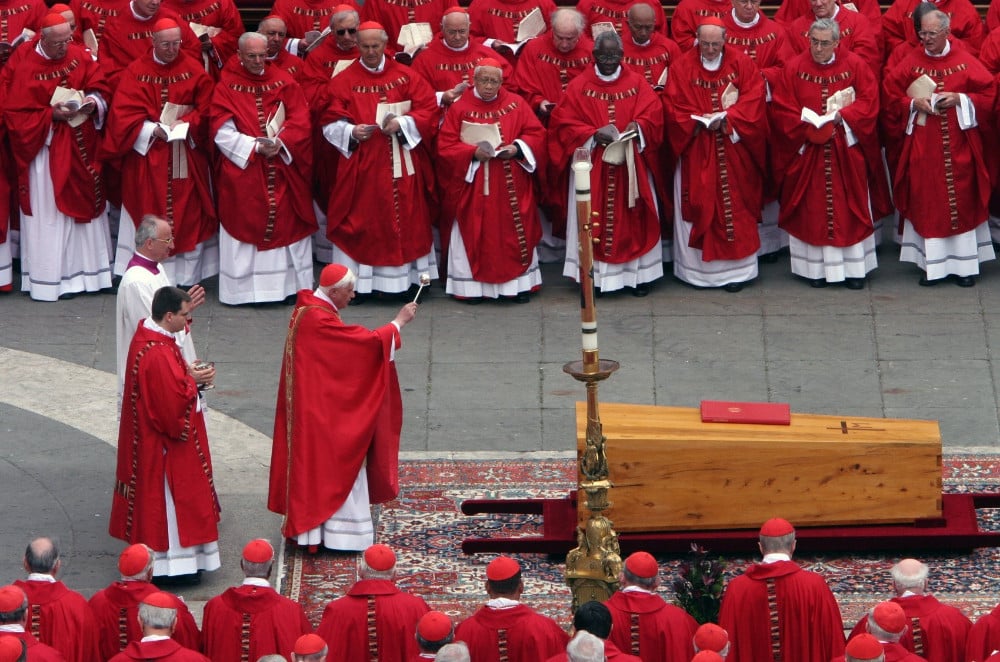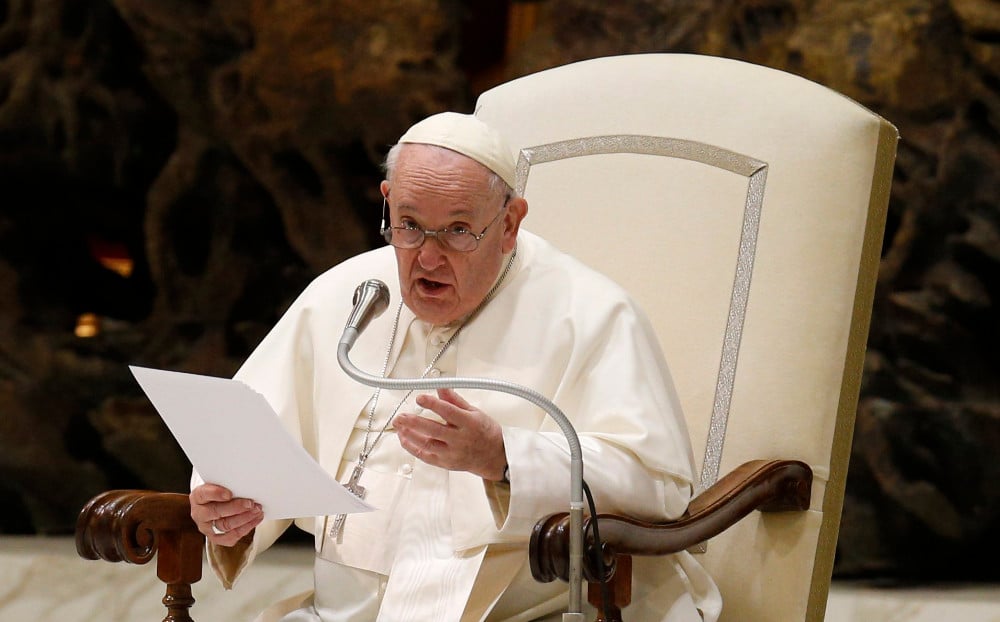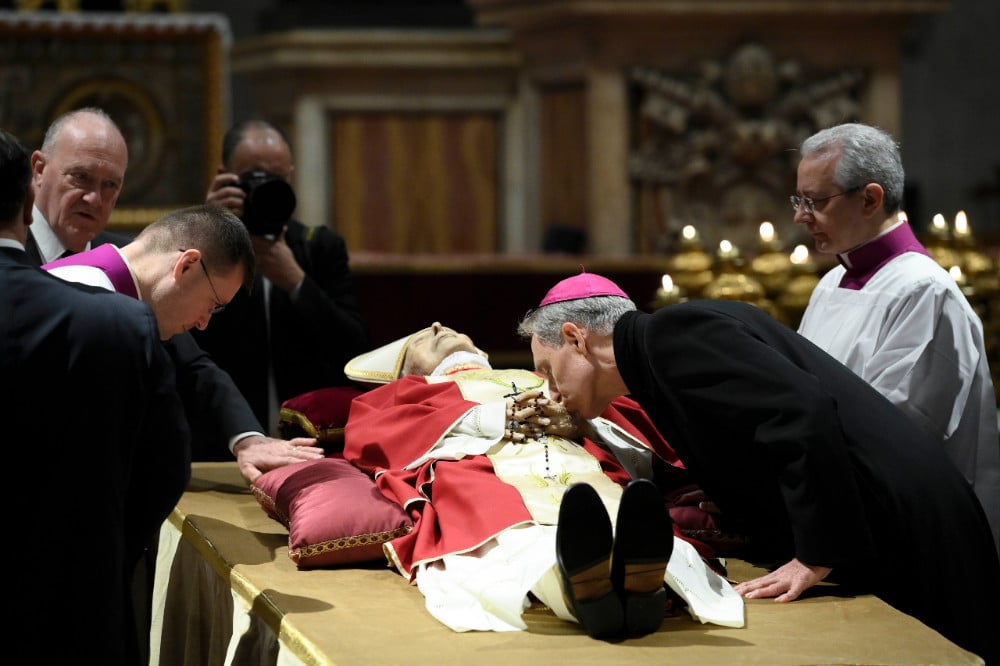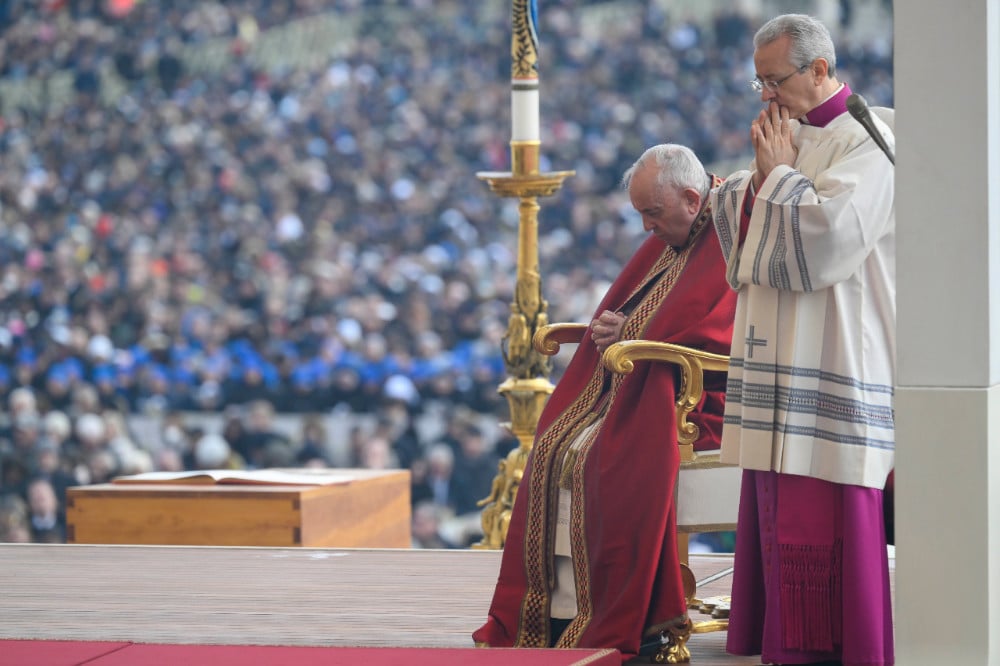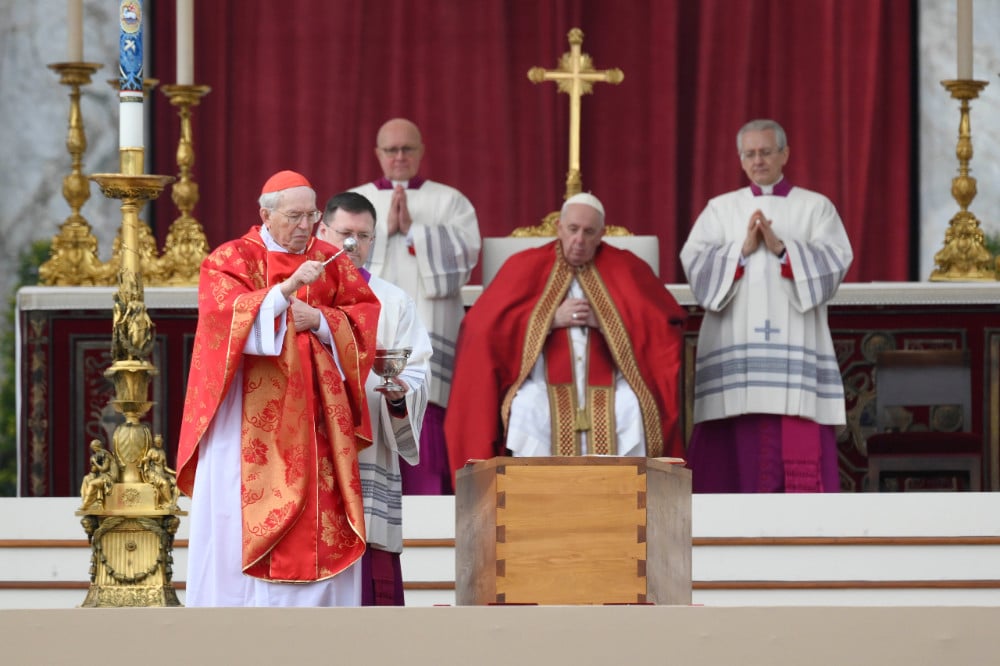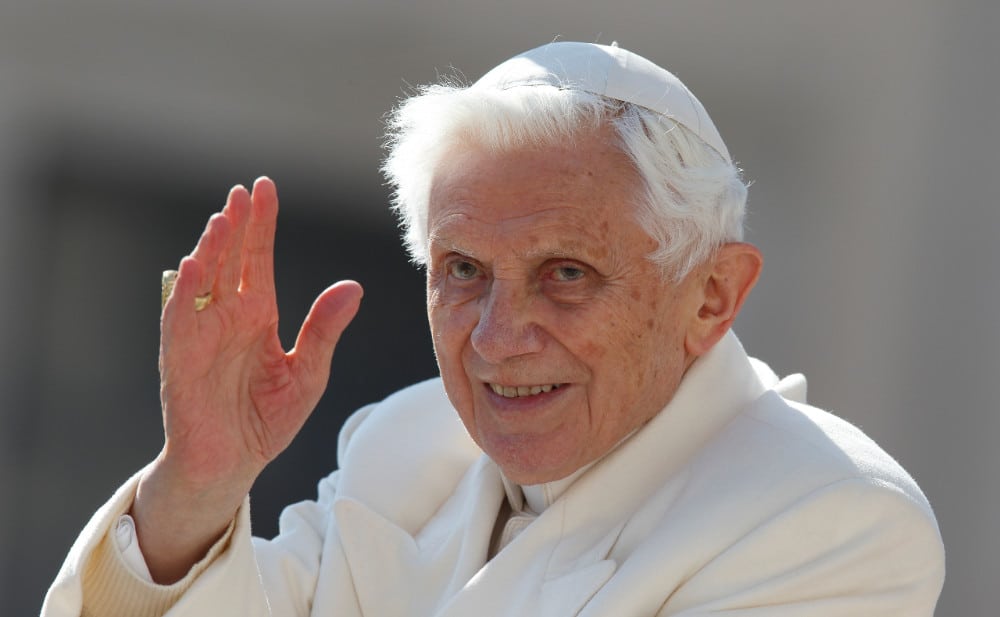A judge arranged for some prominent citizens to meet with teenagers who had been convicted of violent crimes, including murder. After the visitors spoke to the kids about staying in school, avoiding gangs and working hard, the judge asked the teens what moved them to violence, even to the point of killing. One young man answered, “Who says you get to draw the line?”
The group of citizens was silent. They were not expecting the teen’s question, and they didn’t have an answer. But Pope St. John Paul II has one, which he gave almost 30 years ago in his encyclical Evangelium Vitae (“The Gospel of Life”), which was promulgated March 25, 1995: God draws the line, and God says, “You shall not kill” (cf. Nos. 39-41). Moreover, God has planted his commandment in the heart of every human being. Therefore, “every person sincerely open to truth and goodness can, by the light of reason and the hidden action of grace, come to recognize in the natural law written in the heart the sacred value of human life from its very beginning until its end, and can affirm the right of every human being to have this primary good respected to the highest degree” (No. 2).
Context
What prompted Pope John Paul II to write Evangelium Vitae were the signs of the times that pointed to a callous disregard for human life. The pope notes in the encyclical that, in “addition to the ancient scourges of poverty, hunger, endemic diseases, violence and war, new threats [to life] are emerging on an alarmingly vast scale” (No. 3). He provides the catalog of threats listed in Gaudium Et Spes (the Second Vatican Council’s “Constitution on the Church in the Modern World,” cf. No. 27), which mentions, among other crimes, abortion, euthanasia, subhuman living conditions, slavery, and disgraceful working conditions. He adds that, with the progress of science and technology, “new forms of attacks on the dignity of the human being” are expanding (Evangelium Vitae, No. 3).
Read more from our Church Document series here.
The times haven’t changed much. Following the May 2022 leaked draft of the court’s opinion in Dobbs v. Jackson Women’s Health Organization — and after the court officially released the opinion in late June — pro-abortion domestic terrorists committed countless acts of vandalism and violence on Catholic churches, pro-life women’s health clinics and charity organizations.
Such acts of unrest and lawlessness demonstrate the validity of the pope’s dire assessment in Evangelium Vitae: “We are facing an enormous and dramatic clash between good and evil, death and life, the ‘culture of death’ and the “culture of life.’ We find ourselves not only ‘faced with’ but necessarily ‘in the midst of’ this conflict: we are all involved and we all share in it, with the inescapable responsibility of choosing to be unconditionally pro-life” (No. 28).
Content
To help people choose to be unconditionally pro-life, Pope John Paul II in Evangelium Vitae sheds light on the underlying causes of the clash between the culture of death and the culture of life. Then, to illuminate the path away from death, he proclaims the Christian message concerning life and brings out the deep significance of God’s holy law, “You shall not kill.” Finally, he calls on individuals and groups to build a new culture of human life.
The pope writes that the root cause of violence against life is human sin. “God did not make death” (No. 7); he gave life as a gift to human beings and intended them to live with him forever. But the first human beings sinned when they attempted vainly to be independent from God, thereby losing their friendship with him. The discord and alienation that followed even distanced Adam and Eve from each other, and it intensified in their children. Cain allowed anger and envy to move him instead of love for his brother Abel, and he killed Abel. Evil and death enter the world through the sinful decisions of human beings acting contrary to God’s law (cf. Nos. 7-9).
Sin, because it is a choice against God and human nature, disrupts “the very foundations of knowledge and ethics” for people (No. 11). Alienated from God, the human person looks for things to fill the void and find meaning. “He no longer considers life as a splendid gift of God, something ‘sacred’ entrusted to his responsibility and thus also to his loving care and ‘veneration.’ Life itself becomes a mere ‘thing,’ which man claims as his exclusive property, completely subject to his control and manipulation” (No. 22).
The person claims that he (she) is the sole interpreter of what is right and wrong. The all-important “human right” is “my right,” which is whatever “I” say it is, without regard for God, truth, or other people. The evil this mindset produces is not lost on people, for it’s impossible to completely erase God’s sovereignty. Therefore, to cover the truth, human beings create rationalizations such as “murdering an unborn child is a choice of reproductive freedom” or “killing a senior citizen is an act of mercy.“
The upshot for individuals and society is exactly what John Paul II predicted in Evangelium Vitae (and what we have currently in the U.S.): “… the idea of ‘human rights’ — rights inherent in every person and prior to any Constitution and State legislation — is today marked by a surprising contradiction. Precisely in an age when the inviolable rights of the person are solemnly proclaimed and the value of life is publicly affirmed, the very right to life is being denied or trampled upon, especially at the more significant moments of existence: the moment of birth and the moment of death” (No. 18).
Sin, however, does not have the last word. God is the sole Lord of life; “human life and death are … in the hands of God, in his power” (No. 39). The Christian message concerning life proclaims that God does not delight in the death of the living. Indeed, God prefers “the correction rather than the death of a sinner” (No. 9). While God allows the consequences of sin to follow, he doesn’t stop there. He does more. He prepares the world for its savior through the people of Israel and ultimately by the sending of Jesus. “This saving event reveals to humanity not only the boundless love of God who ‘so loved the world that he gave his only Son’ (Jn 3:16), but also the incomparable value of every human person” (No. 3). Through Jesus, we too can do more.
Call
Jesus models for us how to live as a human being, and we can experience freedom from sin and death because he has given us words and grace to follow him (cf. No. 30). The Gospel lays out how to live and the sacraments provide the spiritual strength to be a disciple of Jesus (cf. No. 84). When it comes specifically to the commandment “You shall not kill,” the follower of Christ certainly obeys the negative precept. The direct killing of an innocent person (abortion, euthanasia, etc.) is always and everywhere wrong, as Evangelium Vitae makes clear. No rationalization and no manmade law can justify what is inherently evil (cf. No. 73). God’s law, “the ‘natural law’ written in the human heart, is the obligatory point of reference for civil law” (No. 70).
It is not enough, however, to refrain from killing; we are called to actively promote life as well. God’s commandments and the example of Jesus train us in the way of life (cf. No. 75). Many modern folks think that the ability to do whatever one wants, without censure or guilt, leads to freedom and life. But it’s a perverted sense of freedom because it ends up as a power game, with the “strong” imposing their will on the “weak” (cf. No. 20). Such a life is good only for the strong.
Jesus demonstrates authentic freedom and the fullness of life by obeying his Father in all things and giving his life for others. His total gift of self leads not only to his glory by the Father but also to salvation and eternal life for all who accept his gift through the outpouring of his Spirit through the Church.
Living by the Spirit, receiving the grace of the sacraments, and following God’s commandments begin the communion with God that will reach fullness in heaven. Therefore, the person is free to offer himself (herself), like Jesus, for the sake of others and to build a culture of life. Even when evil and death seem to dominate, those who follow Jesus know by faith that their work is not in vain.
Working for a culture of life always begins in the context of “daily living,” when we have the best opportunities to witness to others. Indeed, making the effort to love selflessly those we encounter daily can often be a heroic witness to the God-given value of those persons (cf. No. 86). But we also have the responsibility to help create a culture of life in the wider society. This means being involved in the public square, voting for good civil leaders, advocating for laws and programs that adhere to the moral law, and helping to establish centers of service to life (cf. Nos. 87-91).
Ultimately, we are called to be witnesses to life, life on earth and in heaven. Out of love for our brothers and sisters, we are called to share and make known the love we (and they) have from God. Even if no one listens or accepts the message, the one who loves is contributing to the renewal of the world and respecting the lives of others. It’s a worthy way to live, as Jesus showed.
David Werning writes from Virginia.

